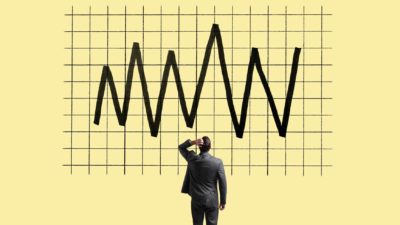The only thing better than a long weekend in January?
Adding the Friday before, and having a four-day break… which is what I'm doing today.
Well, kind of, anyway – I'm writing this, and doing my usual media stuff (and keeping up with goings-on in the office), but I'm not officially at work.
Oh, and I'm in Tamworth.
Why? Well, my young bloke and I are on a road-trip to catch the last few days of the Tamworth Country Music Festival.
It was kind of a last minute thing: A week or so ago, I casually asked him if he wanted to do the Festival again (we'd done it a few years back), expecting him to politely decline. To my surprise, he was keen.
So, we drove half way last night, stopped for a little fishing this morning (no, we didn't catch anything) and arrived here mid-morning, today.
We're off to see Graeme Connors this arvo, then John Williamson tonight.
The rest of the weekend? Well, we've got a couple of others booked over the next couple of days, including The Bushwackers and a Poet's Breakfast, and there's plenty going on in and around the main street.
I'm also looking forward to celebrating Australia Day up here with the crowd and some Australian music. (As I've written before, I have sympathy for those who want to change the date, but my personal view is that I'll celebrate our nation on our national day, whenever it is. If and when it changes, I'll celebrate on that date, instead.)
Anyway, in between all of that, it's been a big week in finance.
The new US President, Donald Trump, is signing executive orders faster than Steve Smith signs autographs at the end of a cricket match, and the shadow election campaign has kicked off here in Australia with announcements and promises on everything from the above-mentioned Australia Day, to apprenticeship bonuses, money for failing airlines, tax deductions on business meals and green aluminium.
It's… been a helluva week.
And that's even allowing for the fact that one of President Trump's signature policies — wall-to-wall tariffs — have yet to surface as part of those orders.
Speaking of which, though, that's one important investing takeaway from this week: a lot of investors tend to think 'Outcome X will happen when Policy Y is implemented'.
That can be true.
But it can also be true that when the market already knows about Policy Y (in this case, tariffs), that policy is already 'priced in'. That is, markets will buy or sell at a price that assumes the policy will happen.
We saw that in action this week with tariffs, but in reverse. The market had already 'priced in' those tariffs, when it came to foreign exchange rates. The US dollar, in particular, had risen in anticipation.
So, when the tariffs weren't implemented, the US dollar actually fell.
Which is… a reminder that trying to speculate on future macroeconomic or geopolitical outcomes is not only difficult in the first place but doubly or triply hard when trying to second-guess what other people already think about those outcomes!
Let's take tariffs, for example.
Will Donald Trump follow through on this threat of universal tariffs?
If so, by when?
And at what level?
And for how long?
And then…
Which companies will be positively and negatively affected?
And by how much?
Will they find alternative markets?
And then…
What impact will that have on the company's long-term value?
And lastly…
Is that impact already priced in?
Phew… that's a lot.
Importantly, none of that is hyperbole. They are the questions you must ask – and answer correctly – if you want to play the tariff arbitrage game.
And what are the odds of doing that?
Well, anyone who's done elementary statistics will tell you that the more variables you add, the lower the odds.
Let's say you have to get three decisions right, and on each question, you have a 75% chance of being right.
The first one gives you a probability of 75%. Multiply that by 75%, then another 75%, and you're at 42%.
A couple more, and you're 24%.
And honestly… how likely is it that you're going to be right three times out of four on each of a handful of questions?
Drop those odds to 60%, and the chances of success fall even further.
Now… take those odds if you want. But it's not for me.
Instead, as I've said before, I have a five-plus year time horizon for my investments.
That is, a point in the future which is after both the current US Presidential term and the next Australian Parliament.
It's true that policy can make a meaningful and lasting difference to a very few companies if they're in the wrong place at the wrong time.
So I'm not saying ignore any risks that could be existential or permanently damaging.
But that's going to be the significant minority.
For the rest?
You know what I'm going to say, right?
There is very, very little of what's happening now that'll actually be consequential for our long-term investing returns.
My advice?
Turn off the news. Stop love-reading or hate-reading the Trump soap opera. Follow policy here because it matters who we vote for, but don't let it unduly influence your investing.
Instead? Well, it's not for everyone, but maybe throw a little country music on, kick up your heels and enjoy the long weekend.
If you need me, I'll be the bloke in the Akubra on Peel Street in Tamworth. And singing along with the music.
So, as they say… remember the Aerogard, and avagoodweegend!
Fool on!









